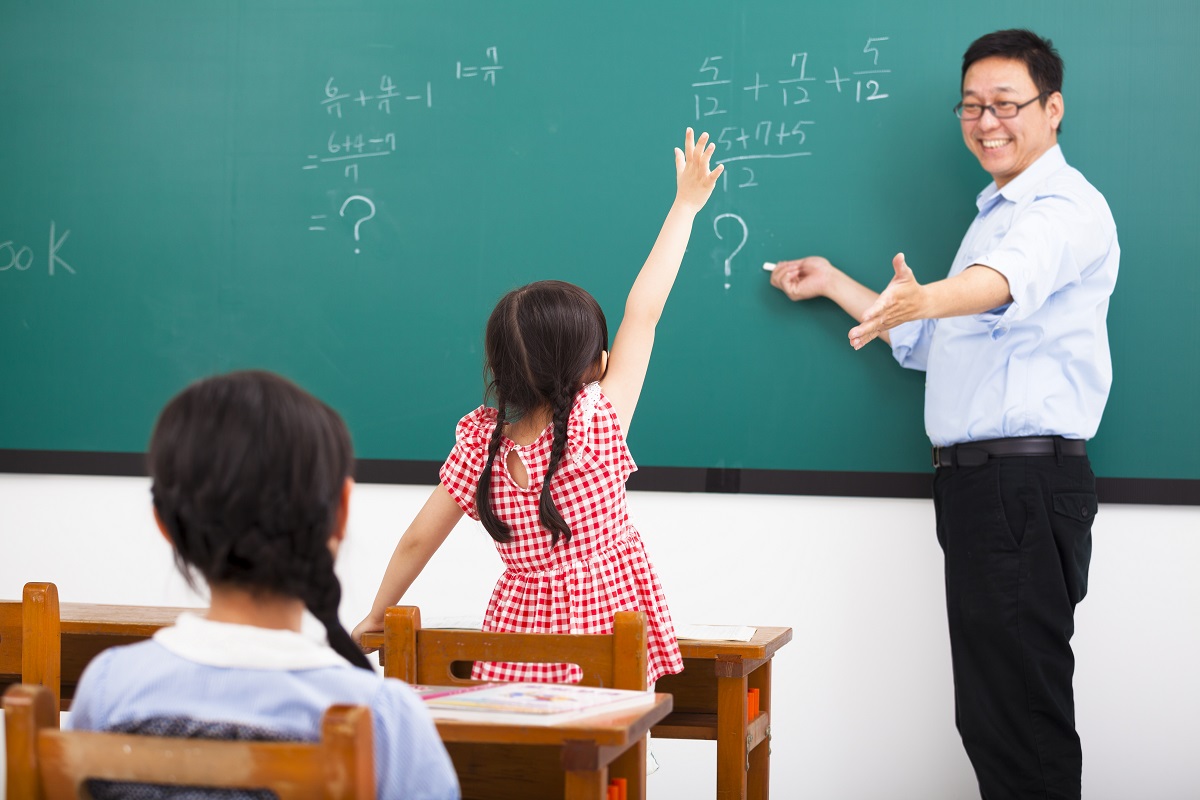Discover the Vital Advantages of Understanding Key Science for Young Learners
The importance of key scientific research education and learning for young students extends much past plain expertise acquisition; it acts as a basic column in creating crucial abilities such as important thinking, analytical, and imagination. Involving with clinical principles with interactive and inquiry-based activities not only cultivates curiosity but also prepares for durable, confident students. As we discover these advantages additionally, it becomes clear that the effects for future scholastic and individual development are profound. What certain strategies can instructors utilize to optimize these benefits?
Enhancing Important Believing Abilities
Cultivating crucial thinking skills in young students is vital for their cognitive growth and future scholastic success. Critical reasoning enables youngsters to evaluate info, assess evidence, and make informed choices, which are vital abilities in today's information-rich culture. By taking part in clinical query, young learners can boost these skills as they discover ideas with monitoring, testing, and thinking.
In main science education and learning, teachers can facilitate crucial reasoning by motivating trainees to ask inquiries, develop theories, and perform experiments. This hands-on technique allows youngsters to exercise analytic and develop sensible reasoning skills. When pupils investigate the buildings of products or the principles of movement, they discover to examine their searchings for critically and attract final thoughts based on evidence.
In addition, conversations and joint projects can promote crucial reasoning by providing opportunities for learners to verbalize their ideas, obstacle presumptions, and think about diverse point of views. By producing a supportive atmosphere that values query and reflection, instructors can support crucial thinking skills that equip young learners to become independent thinkers and lifelong students. Inevitably, boosting these abilities lays a robust foundation for their future scholastic undertakings and personal growth.
Promoting Inquisitiveness and Expedition

Main scientific research education gives a structured setting where young learners can discover different phenomena with hands-on experiments and observations. By permitting them to connect with products and participate in inquiry-based understanding, educators produce opportunities for children to formulate hypotheses, examine their ideas, and reason. Such experiences support a feeling of wonder and excitement regarding science.

Building Self-confidence in Problem Solving
Building self-confidence in analytic is a crucial component of key science education and learning that equips young students to approach obstacles with strength and creativity - primary science tuition Singapore. When kids are encouraged to engage with scientific principles through hands-on activities and inquiry-based learning, they develop necessary skills in crucial reasoning and evaluation. This process not just improves their understanding of clinical principles yet likewise fosters a feeling of ownership over their discovering
To build confidence, teachers need to produce a helpful setting where errors are deemed chances for development instead of failures. This motivates trainees to take threats and explore various solutions to issues. By offering scaffolding and assistance, teachers can help students navigate complicated jobs, slowly boosting their freedom in analytic situations.
Moreover, collaborative understanding experiences, such as group projects or experiments, can even more boost students' self-confidence as they learn to verbalize their ideas and pay attention to others' perspectives. These communications nurture social skills and strengthen the concept that problem-solving is usually a collective endeavor. Ultimately, growing self-confidence in problem-solving prepares young students for future academic obstacles and equips them with the devices required for long-lasting understanding.
Urging Creative Thinking and Innovation
In the realm of main science education, encouraging creativity and development is important for cultivating a dynamic understanding environment. By cultivating a society where young learners can check out ideas and experiment openly, educators aid students establish vital thinking abilities and an interest for exploration. Creative thinking in science encourages kids to ask inquiries, develop hypotheses, and take part in hands-on activities that stimulate their imagination.
Integrating flexible tasks and inquiry-based discovering right into the educational program enables pupils to reveal their unique viewpoints and options. For circumstances, when charged with fixing a problem pertaining to their environment, pupils can conceptualize multiple methods, resulting in innovative results that showcase their creativity. This not just strengthens their understanding of clinical principles yet also infuses a feeling of ownership over their knowing process.
Furthermore, imaginative scientific research education and learning supports collaboration among peers, as pupils commonly share ideas and build on each other's insights - primary science tuition Singapore. This collective spirit advertises not only development but check this also vital social skills. Thus, by focusing on creative thinking and development in main scientific research education, we encourage young students to believe seriously, accept difficulties, and visualize opportunities, laying a solid structure for long-lasting discovering and expedition
Preparing for Future Discovering Challenges
Young students' ability to navigate future discovering obstacles pivots on a strong structure in main science education. This foundational understanding gears up students with crucial thinking skills and a systematic technique to analytical, essential for dealing with complicated concerns in an ever-evolving globe. Key scientific research promotes inquiry-based discovering, motivating pupils to ask questions, discover hypotheses, and take part in hands-on experiments.
As they develop these abilities, learners become experienced at evaluating data, identifying patterns, and drawing informed verdicts. Such competencies are important not just in clinical areas however additionally in mathematics, engineering, and modern technology (STEM), where interdisciplinary knowledge is progressively important.
Additionally, primary science education cultivates a sense of interest and durability in young learners, enabling them to view difficulties as possibilities for growth. As they encounter and conquer obstacles in their scientific explorations, they develop self-confidence in their capability to innovate and adjust.
Ultimately, a solid structure in primary scientific research not only prepares young learners for academic quests yet likewise equips them with the devices needed for long-lasting learning and adaptability in a quickly transforming worldwide landscape. By buying key science education and learning, we are purchasing the future possibility of our learners.
Final Thought
Understanding primary scientific research is important for young students, as it promotes essential thinking, curiosity, and creativity. Engaging with scientific ideas through hands-on experiments boosts analytic capacities and develops durability. This fundamental understanding not just outfits trainees to assess information and acknowledge patterns but additionally nurtures an inquiry-based state of mind. Inevitably, the benefits of primary science education prepare children for future academic quests and impart lifelong discovering habits crucial for flourishing in an ever-evolving world.
The significance of main scientific research Get the facts education for young students expands much past mere knowledge acquisition; it serves as a fundamental column in creating important abilities such as vital thinking, analytic, and creativity. By developing a helpful environment that values inquiry and representation, instructors can nurture essential thinking skills that equip young students to come to be independent thinkers and long-lasting learners. Hence, by focusing on creative thinking and technology in main science education, we encourage young students to think seriously, accept obstacles, and visualize possibilities, laying a strong structure for lifelong discovering and expedition.
Young learners' ability to navigate future knowing challenges pivots on a solid foundation in primary science education and learning.Comprehending primary science is vital for young learners, as it fosters see this page vital reasoning, inquisitiveness, and imagination.